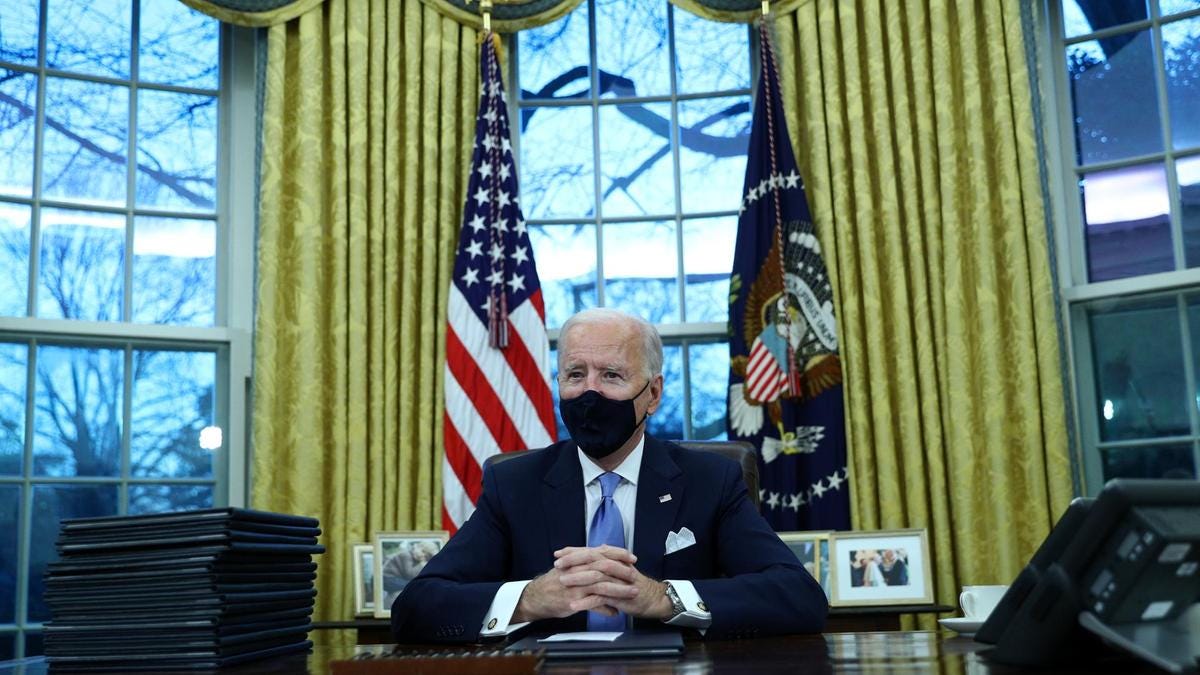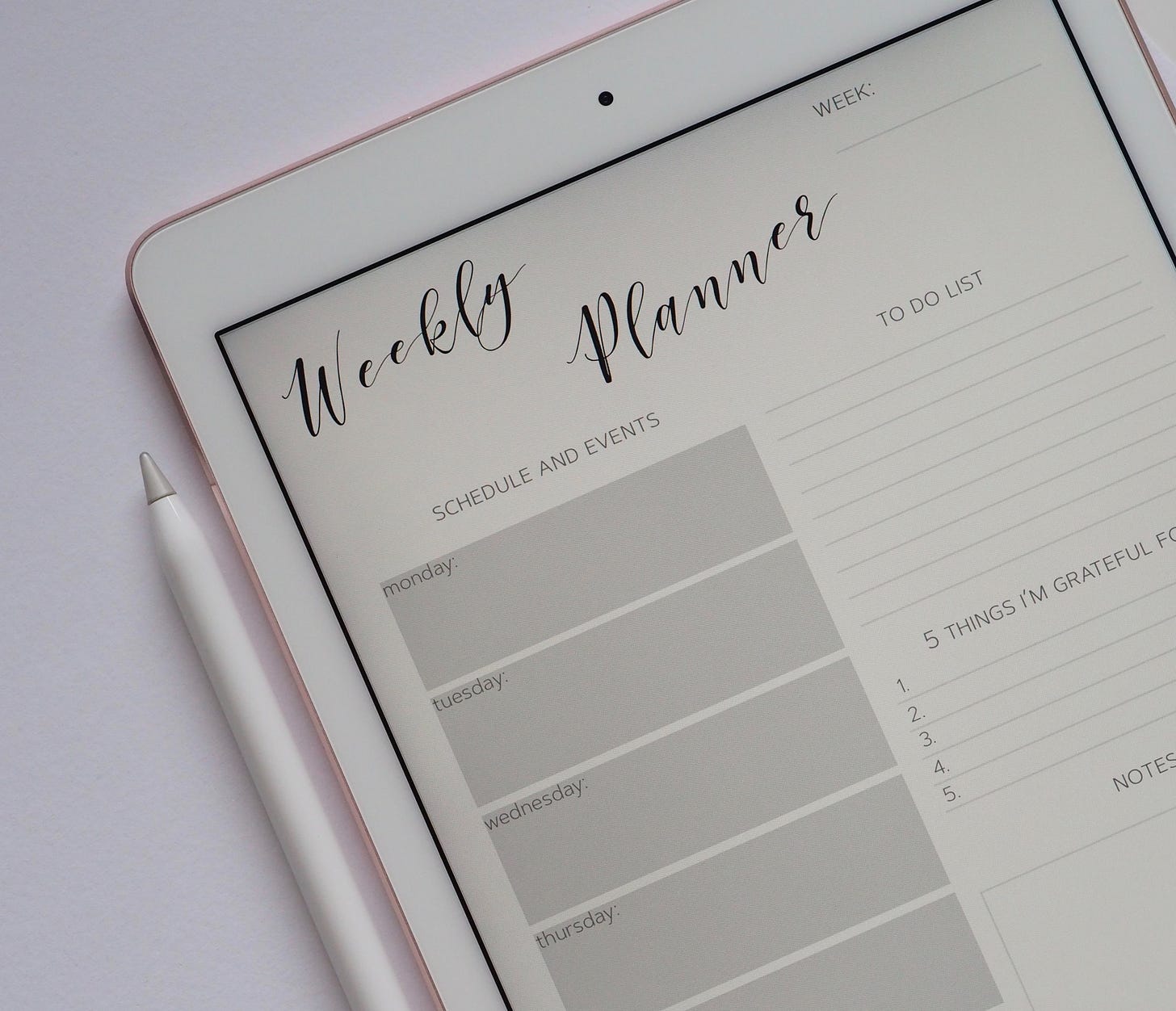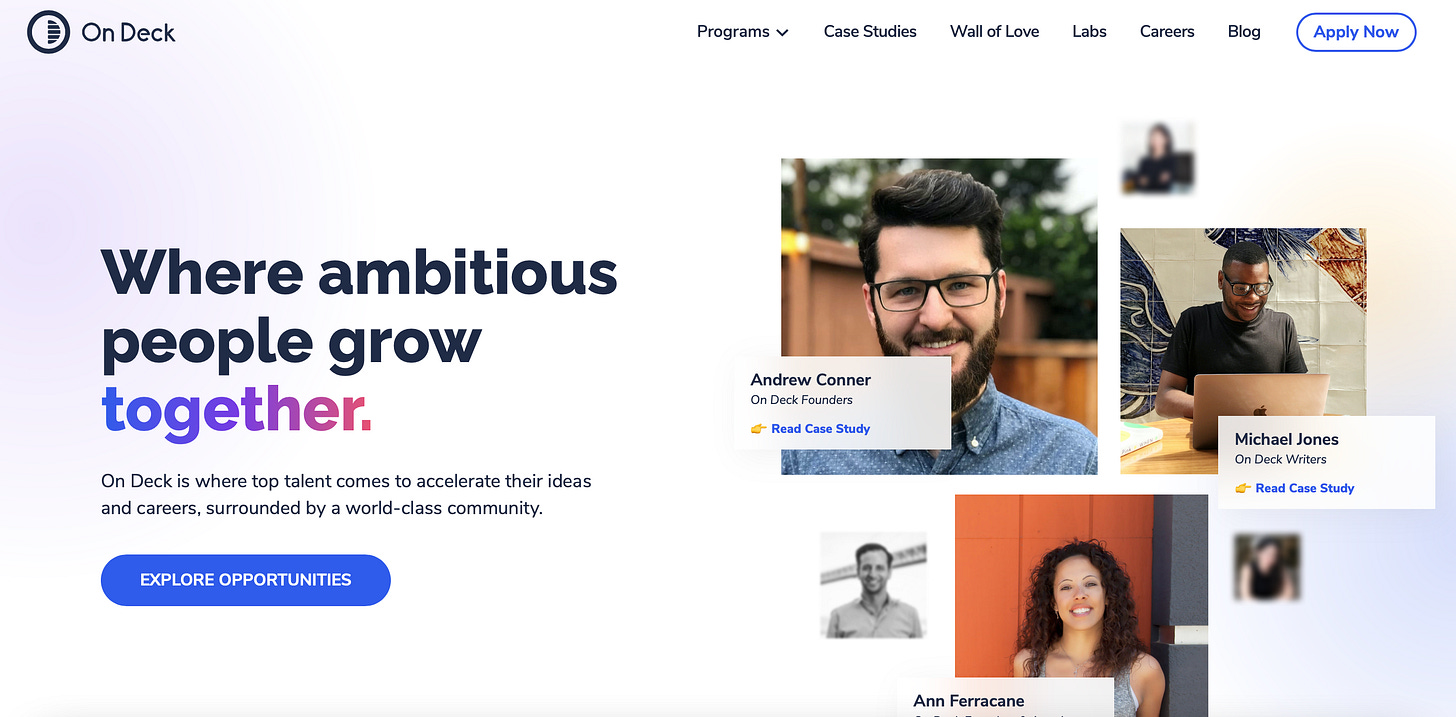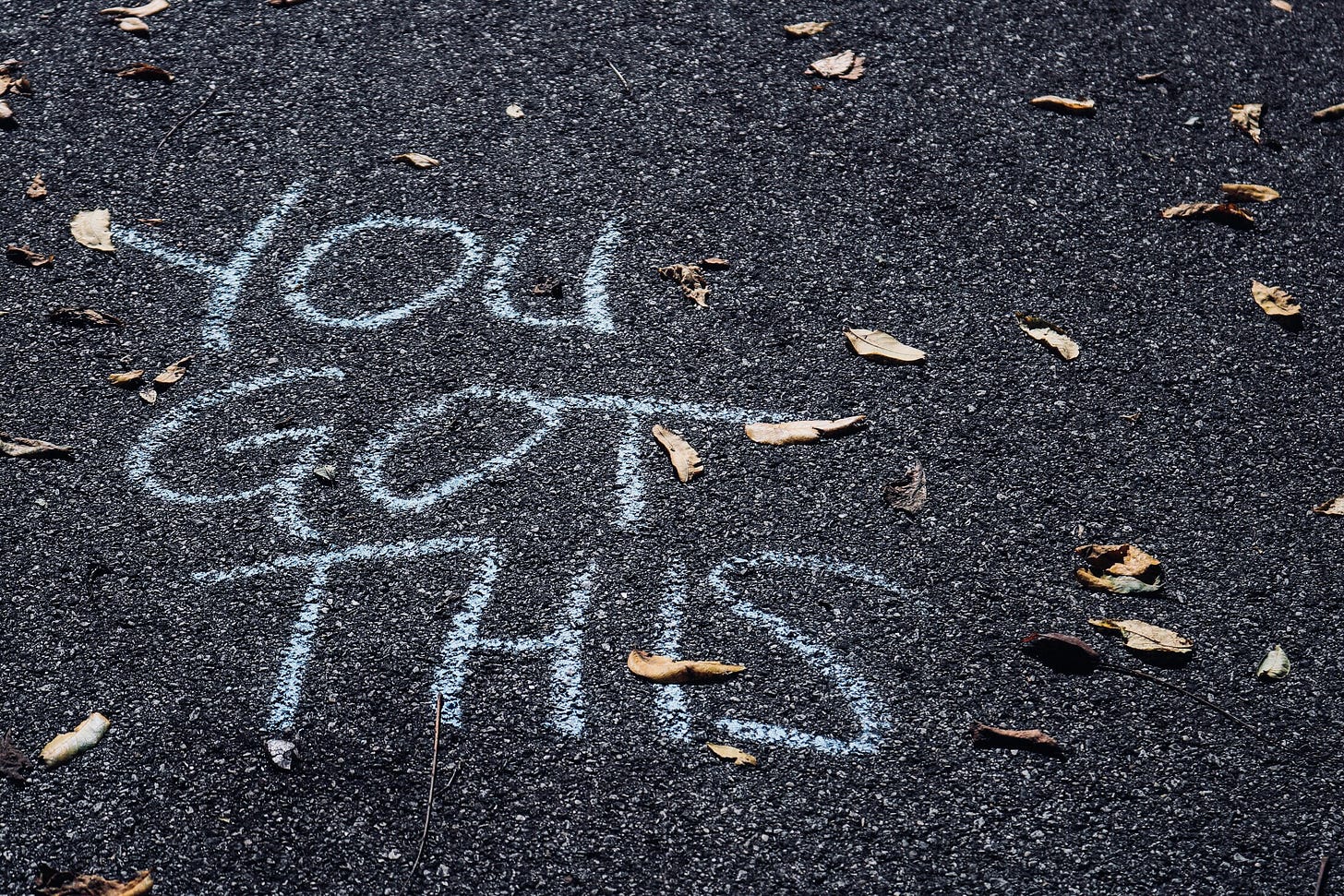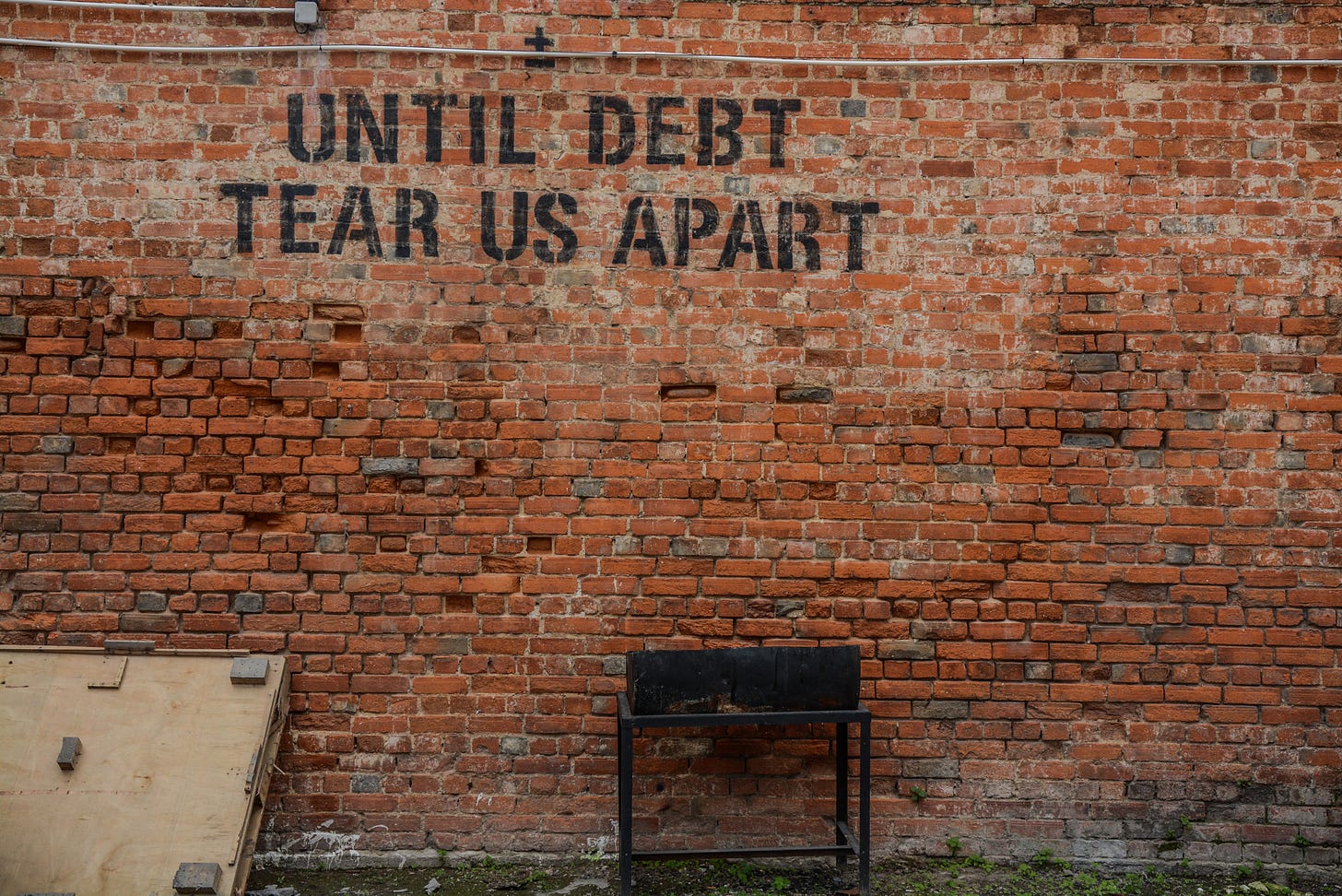Now the real work begins
In this week’s newsletter: Why our democracy requires more than President Biden can give us. Plus: How to silence your disempowering self-talk.
About twenty minutes into her first briefing yesterday, White House Press Secretary Jen Psaki was asked to share President Joe Biden’s reaction as he entered the Oval Office for the first time as leader of the free world. “Well, I spent a little time with him earlier and he had an incredible sense of calm and a sense of some joy. Remember he spent eight years here as the vice-president playing an important role as a partner to President Obama. And that was the emotion that overtook him today,” Psaki said. “He’s also eager to get to work. He was asking questions about policy and COVID and what’s next. And so that also reflects his desire to roll up his sleeves and get going.”
We’ve also got to “get to work” too. The challenges we face — from the global pandemic and the economic collapse to the racial reckoning against white supremacy and our climate crisis — are too enormous to expect one man and his administration to solve them. Democracy requires us to hold our elected officials in Congress accountable for honoring the mandate they received from voters. It requires us to recalibrate our media diets to ensure we’re consuming fewer hot takes, clickbait articles and views from nowhere. It requires us to practice empathy to change people’s minds so your vote turns into many votes going forward.
This work will look different for all of us. For some, it’s organizing a community around a cause. For others, it’s running for office or volunteering on a campaign. For me, it’s reporting the policies and their impact on the creative class with clear eyes, fairness, accuracy and a healthy amount of skepticism. But we’re the ones we’ve been waiting for. Because we’ve seen what happens when we surrender our power to politicians, capitalists and culture vultures without recompense. And we’ve got a real chance to dismantle some of the systems and institutions that have kept us on the margins for too long. It’s time for us to take up space and transform representation into a world where we all have a chance to win.
What I Wrote This Week
Prop 22 was never about “worker empowerment”: As the controversial California ballot initiative faces its first legal challenge, it’s worth remembering that it exists to allow app-based businesses to escape accountability for their exploitive business models.
Of course, Uber CEO Dara Khosrowshahi would disagree with this characterization. “I think that the feature of independent contractors in this kind of work is that it creates a huge amount of flexibility for a certain portion of the population, if they’re students, if they need to take care of family, if they need to take their kids to school, et cetera, to be able to work and to make decent money,” Khosrowshahi said in a recent interview with Kara Swisher on her New York Times podcast “Sway.” “The important part here is to set expectations in a fair way. You’re not going to make $50 an hour delivering, you’re going to make $15, $20 an hour or more and have flexibility and we think that’s a decent proposition and clearly drivers and couriers are kind of voting with their phones so to speak.” Khosrowshahi added that a “normal person" would think the opportunity to “retain flexibility, and add benefits, and add minimum earnings, and add protections against discrimination, et cetera” is a better alternative to making everyone employees and removing all flexibility. But as I wrote last August: “No one is questioning that drivers, like most workers, want more flexibility, not less. But what good is that flexibility when your quality of life prohibits you from actually enjoying it?”
How about we just bask in the joy of Inauguration Day? It was nice to finally turn the page from the horror of the past four years.
It’s literally my job to show up four days a week with something meaningful to say about what’s happening at the intersection of creativity, work and power. But even my editorial rigor was no match for the historic scene that took place at the US Capitol this morning, as Joe Biden and Kamala Harris were sworn in as president and vice president. I knew this day was possible four years ago when I watched in horror while Donald T**** spewed one of the darkest speeches I’ve ever heard in my life. What I didn’t anticipate back then is the overwhelming relief, pride and optimism I would feel when it finally happened. It feels as normal and quiet in America as possible during a once-in-a-century pandemic, once-in-a-generation economic collapse and the aftermath of a violent attempt to overthrow our democracy.
For all access to these and future essays on the intersection of creativity and the new economy, subscribe to The Supercreator. Already a subscriber? Log in to your account.
Thoughts and Things
To my fellow recovering perfectionists: True success is more than checking boxes.
This book is a manifesto for conscious creators who realize that we actually don’t have to love our work.
OK Boomer: Old folks are now the fastest-growing category of e-commerce shoppers.
This digital dashboard tracks the fulfillment of President Biden’s promises for the first 100 days.
How to become the best mentor you can be.
Since masks aren’t going away anytime soon, it may be time for me to finally embrace the mask chain.
Mentions
Last fall, I was accepted to the inaugural cohort of the On Deck Writer Fellowship — an eight-week accelerator for bloggers and newsletter authors — with 200 other writers from around the world. My friends at On Deck asked me to share my experience as an ODW1 fellow before the holiday break and published my journey as a case study on their slick new website.
Read the case study to discover why I applied to ODW, how it has impacted my life, and what I got from the program that I wasn’t expecting. Then check out all the ways On Deck can support your creative work, including fellowships for founders, podcasters, designers, community builders and more.
Ask Michael
Do you have any advice for people who are still a work in progress when it comes to negative self-talk and creativity? I find myself shutting down my own ideas before I can give them room to grow sometimes, which I’m sure is stunting my own potential for creative breakthroughs.
In my experience, disempowering self-talk is our mind’s way of protecting us from the possible embarrassment, humiliation or rejection that could live on the other side of us sharing our creativity with the world — especially if we have unresolved trauma that triggered those feelings in the past. This often manifests in imposter syndrome and a phenomenon I call the “Comparison Pit,” an agonizing mental state where empowering feelings of gratitude, grace, joy and abundance give way to anxiety, analysis paralysis, and a debilitating cocktail of envy, jealousy and resentment. We fall into the Pit because our brains are drawing conclusions from people’s highlight reels — not the bloopers and blunders they’ve intentionally left on the cutting room floor. Even worse: The deeper you sink, the more highlight-reel fodder you crave. This vicious cycle corrodes any motivation to create meaningful work. What few people are generous enough to admit though is that we’re all works in progress doing the best we can with what we have.
The good news is that all self-talk — whether it uplifts or puts us down — is made up. We tell ourselves the stories that make us right about what we believe. So if I believe that I deserve to be miserable, then I’m going to squash anything that suggests otherwise with personal insults. But if I believe that the universe is working in support of my life, then I can choose to be joyful in the midst of unpleasant circumstances.
You may find it helpful to interrogate the origin of the self-talk: Who or what made you believe your ideas were unworthy of being crafted by you and valued by the world? Do you consume media or engage in dialogue with people who interrupt or reinforce the disempowering self-talk? Be intentional about the people and tools you invite into your headspace. No one or nothing is worth your peace of mind or the forfeiture of your creativity.
With all that said, there’s no guarantee that the disempowering self-talk may ever go away. For me, it’s still there; it’s just not as loud as it used to be. So practice grace — the permission to forgive your mistakes, lapses in judgment and harmful behavior — in the form of routines and rituals that can take up the oxygen that the cynical thoughts live on. I have a playlist of songs that empower me to create in excellence regardless of the outcome. I meditate to check in to my breath and train my attention and awareness. I keep a Feel Good Folder with words of encouragement from people who love me for who I am not what I do. And I’m learning to unplug and recharge before my anxiety starts to spiral out of control. Some — or none — of this may work for you. And that’s totally OK. What matters is that you show up for yourself in ways that generate the confidence and courage to work and live on your own terms. I’m rooting for you.
Have a question about how to make, brand, market and sell with confidence and clarity? Reply to this email or leave a comment below and it may be featured in an upcoming post.
From the Archive
President Biden’s education department announced yesterday that it will extend the pause on federal student loan payments and collections and keep the interest rate at 0%. In response, Rep. Alexandria Ocasio-Cortez of New York’s 14th Congressional District tweeted: “OK now let’s cancel them.” (Disclosure: I live in AOC’s district.) The Supercreator supports student loan forgiveness because it will return some of the investment that the new economy has been unable to deliver for our generation: ”The American Dream has failed millennials” (published 12/2/20):
My rationale for student loan forgiveness is personal and unsophisticated: The American dream has failed us. Many millennials, especially first-generation college students like my sister and me, were promised that higher education was fundamental to upward mobility. And that obviously hasn’t been the case. Here is where I copy and paste the facts and figures you’ve already seen before if you read my work: Health care, housing and education are five times more expensive for us than they were for our parents. Steady, stable jobs have become endangered species. Wages have been flat for more than four decades. And white millennials are five times more likely to receive an inheritance than non-white millennials even though millennials of color make up 45 percent of the millennial population. In fact, because college is so expensive, a degree isn’t a wealth generator for Black students. In her piece for The Atlantic, Lowery noted research from economist Thomas Shapiro that showed the median white borrower has paid off 94 percent of debt two decades after they enter school; the median Black borrower has paid off just five percent.
FYI: Subscribers enjoy on-demand access to the full archive of posts featuring original reporting, rich storytelling and smart product recommendations.
Thanks to you for reading and to the paying subscribers who make free posts like these possible. If you were forwarded this message, sign up to get future posts sent directly to your inbox. And if you enjoy this newsletter, please share it with a friend or five. See you next week!


